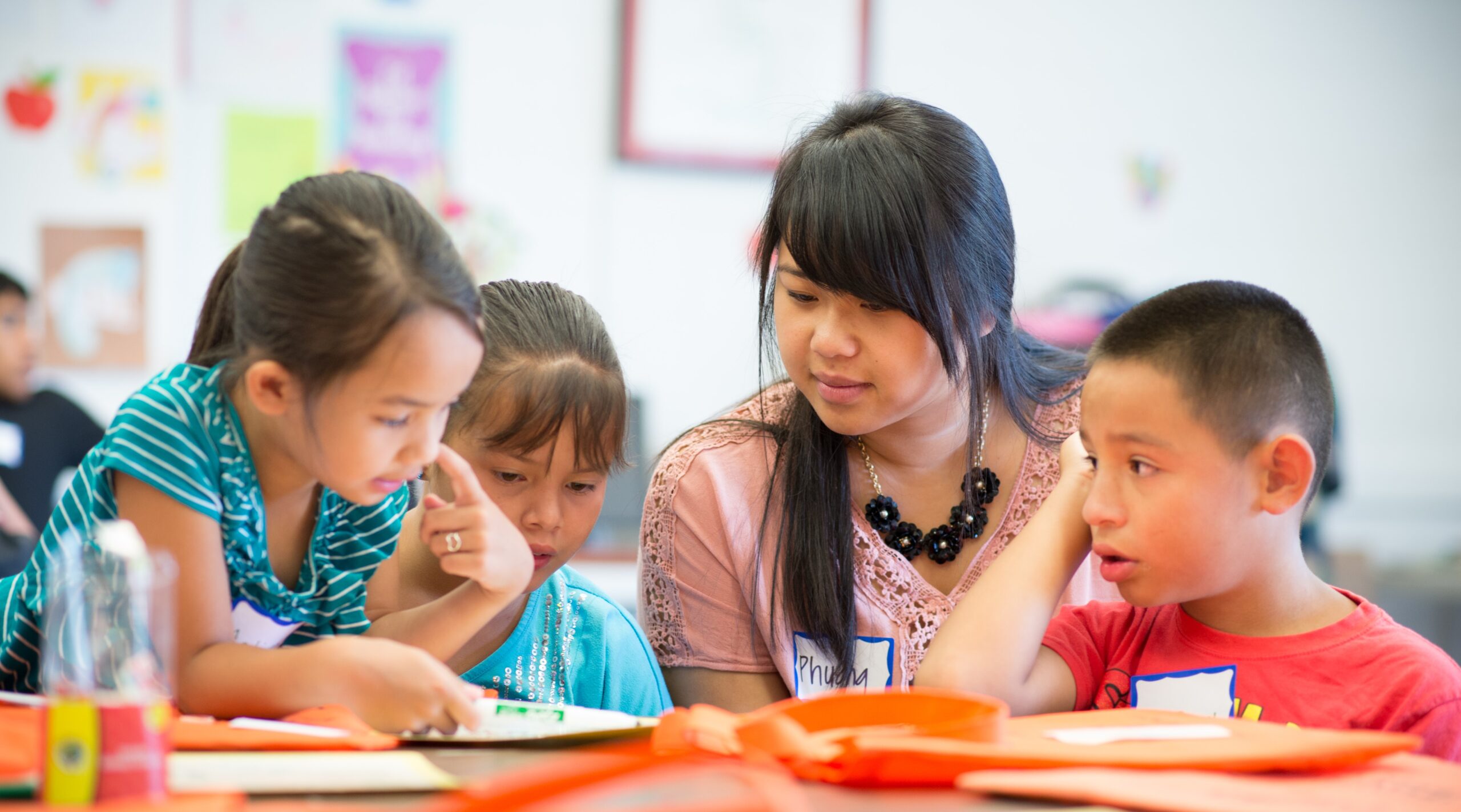
- This event has passed.
What Happens (or Doesn’t Happen) in One Generation Affects the Next: 2Gen Strategies for Alleviating Poverty, Part 2

Ayeola Fortune of United Way Worldwide launched the conversation by sharing data from the 2023 United Way Global Impact Practices Survey. The survey provides data on how United Ways are advancing work in key impact areas across childhood and youth success, economic mobility, health and environmental sustainability, and disaster response. Almost three-quarters, 73%, are working on childhood success, ensuring that children ages birth to 8 get off to a good start by investing in efforts that help parents access high-quality early childhood programs and literacy supports for their children.
2Gen strategies are helping United Ways to integrate holistic solutions that span a range of issues facing low-income families. By engaging community members, making strategic investments, aligning and coordinating efforts across partners, gathering data to understand areas of progress and challenge, and building community awareness of needs, United Ways are strong partners leading and supporting 2Gen efforts.
The North Star for Ascend’s work is economic mobility for all families. The approach to achieving that vision is to intentionally and simultaneously work with children and the adults in their lives. The core components of 2Gen include financial stability, social capital, health care and quality education. Marjorie Sims of Ascend posited that “social capital happens to be the secret sauce of taking a two-generation approach. And that simply means allowing families to understand and bridge networks and opportunities, so that they can navigate formal and informal systems for themselves.”
2Gen approaches unfold along a continuum, meaning that first and foremost organizations must learn about the approach. For many, 2Gen represents a new way of thinking about designing programs and policies to serve families holistically. Most programs and policies center on the individual or member of the family. This work requires a mindset that helps organizations and systems design strategies to align and coordinate services to support the whole family.
Sims reminded us of the five guiding principles for a 2Gen approach: 1) measure and account for outcomes for both children and the adults in their lives; 2) engage and listen to the voices of families; 3) ensure equity, particularly racial equity; 4) foster innovation and evidence together; and 5) align and link systems and funding streams.
In the next segment of the conversation, representatives of the United Ways of San Antonio and Bexar County and Central Indiana described how they are designing programs and policies that support children and families simultaneously.
San Antonio’s 2Gen initiative serves 300 families, which includes approximately 220 adults who are enrolled in education and/or training programs and 250 of their children who are receiving some type of quality care of after-school support. Lakeshia Bragg of United Way of San Antonio and Bexar County described their approach to the work, “We’re making sure that we’re providing the supports that families need. We know that families are the best teachers and families know exactly what it is that they want to receive from programs, so voice is a big deal, and it is a big issue within our initiative. It helps to guide us when we’re making decisions across our initiative.”
With more than 244 households in Central Indiana living in, or one emergency away from poverty, the local United Way has made a 2Gen approach foundational to the work in their community. United Way of Central Indiana is helping to move families toward economic prosperity by focusing on: safe and affordable housing, basic needs, economic mobility, and early care and learning. For Shannon Jenkins of United Way of Central Indiana, “all this work is grounded in the concept of reducing intergenerational poverty. We know that when we reduce intergenerational poverty, we are creating intergenerational opportunity and economic prosperity for households and families.”
Both United Ways are leveraging parent voice to guide their work; collecting data and measuring the progress of children and their parents; and creating intentional linkages between child and adult services and supports to advance 2Gen strategies that emphasize children’s learning and development while simultaneously engaging parents in their own skill development.
Whether in the role of funder, provider or partner, United Ways are supporting children, families and caregivers together — which is at the heart of a 2Gen approach. We hope you will join us for part three of this conversation in November, as we continue to explore 2Gen approaches that are working across systems and sectors to create intergenerational opportunity.
Panel






